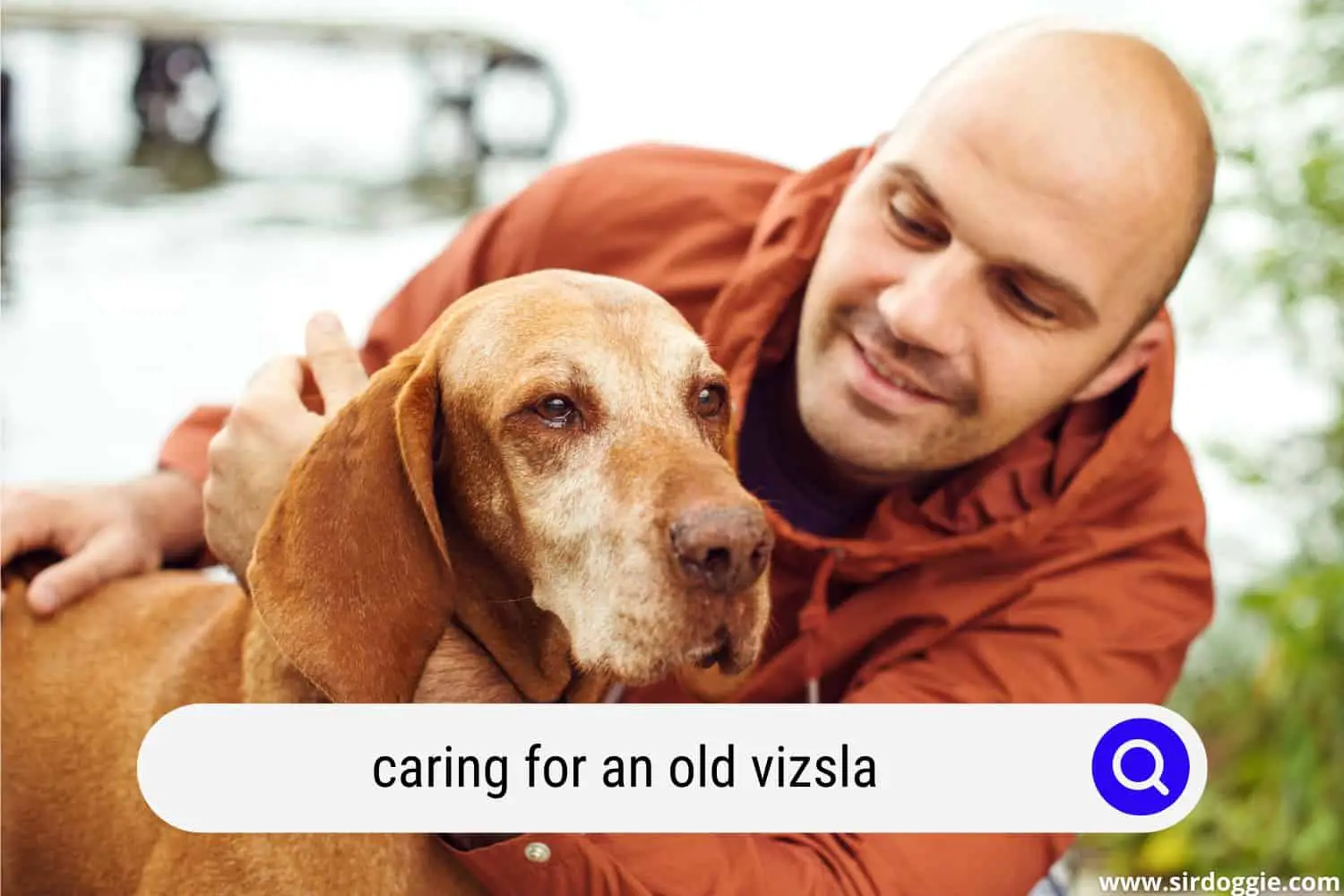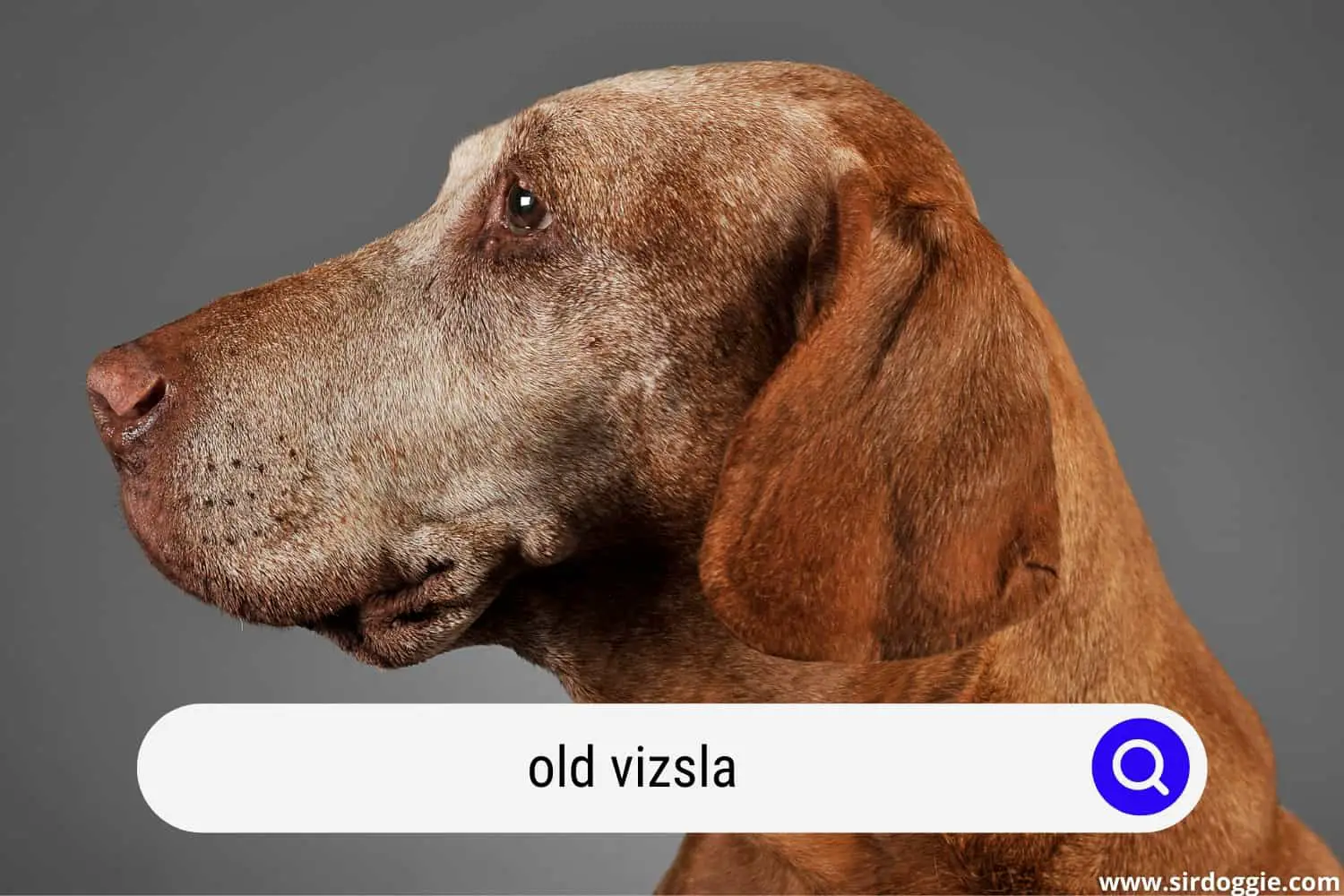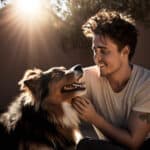Caring for an Old Vizsla
Time passes for all living beings, whether human or animal. Regardless of the animal’s species or breed, it is born, grows, reproduces, ages, and then dies as it is the natural cycle of life.

Many people believe that the word “getting old” is synonymous with “death” when it comes to dogs, but they are totally wrong. An aging person who has had an excellent lifestyle will be better off than a younger person.
The same thing happens with dogs. It should be noted that, unlike human beings, not all dogs age at the same stage of their lives since it depends on the size they reach and the breed.
Aging Vizslas can continue to maintain the energy they had throughout their lives. However, it is essential to know how to care for them when they reach that age properly. In the same way, it is important that as the owner of this type of dog, you know how to identify the first signs of aging in order to take the necessary measures for their proper care.
Generally, older dogs become slower and tire quickly. Even on many occasions, the personality and behavior of the canine can change. For that reason, you should strive throughout your pet’s life to provide a happy and healthy life.
When Will a Vizsla Start to Age?
As we have said before, the canine’s age depends mostly on the size of the breed and its quality of life. Generally, small and medium dog breeds begin to age between 8 and 12 years or more.
It should be noted that the Vizsla belongs to a medium-large breed of dogs so it could begin to age before 8 years. Specifically, the aging range of this canine is between 5 and 8 years of age.
How to Help Our Vizsla during the Aging Stage?
The most advisable thing to do at the beginning is to take it to the vet so that he or she will indicate the guidelines that you must follow for its care. Similarly, it is a good idea to take your old dog to the vet periodically (at least twice a year), so he or she can check it out properly.
A veterinarian will not only help you take care of your dog and give it a good lifestyle during this stage of its life but will also be in charge of ensuring the correct treatment in case your Vizsla is suffering from any disease.
Next, we will explain in more detail the tips you should follow to care for an old Vizsla:
Daily Exercise Routines
This aspect is very important for many dogs, especially for Vizslas. These canines are characterized precisely by having a high level of physical activity. That means they are athletic, active, and energetic animals when it comes to exercise or any other activity.
You cannot allow such an active dog to lose all its energy due to aging. It is essential that you keep your Vizsla in shape. What you should do is continue to provide daily training and exercise sessions so that your dog does not lose mobility and remains healthy and strong.
Adult Vizslas generally need a couple of hour-long sessions a day. However, we cannot over-strain our old Vizslas body, so it is advisable for them that the training sessions last approximately 30 minutes. That will not only allow your dog to have adequate physical health but will also help prevent degenerative diseases such as arthritis that are often common in these animals.
A recommendation is to vary the type of physical activity so that your Vizsla does not get bored. Some of them can be games, walks, or physical and mental exercises.
Appropriate Feeding for an Old Vizsla
One of the most common problems that most dogs in the world tend to suffer from is obesity. This condition is more common in older dogs. The Vizslas are no exception.
Older Vizsla dogs tend to gain weight more easily, regardless of daily exercise. Therefore, it is necessary to provide our dog with a balanced diet based on nutrients and vitamins. You have to feed your Vizsla in a balanced way taking into account its exercise routines. If your old dog is already overweight, what you should do is reduce the amount of food you give.
Similarly, an old Vizsla can also suffer from excessive weight loss. That’s because most dogs are more prone to illness during this stage. In these cases, the best decision is to take it to the vet to be checked.
A very important point to keep in mind is that old dogs suffer from many dental problems. As these animals get older, their teeth begin to have problems and weaken, so you should make sure to feed them soft food to chew easily.
In the previous point, we talked about the exercise routines that our Vizsla should perform. Considering that its physical activity will be reduced since it will only do 30 minutes of exercise, we must make sure that our dog’s food has 25% fewer metabolizable calories.
An old Vizsla diet should be low in calories and have many antioxidants and chondroprotective, which are usually good for its joints. Also, we cannot forget the vitamin C and fiber that are essential for a dog at this stage.
Give Your Old Vizsla Lots of Love
Vizslas are usually very loving and friendly animals that have a sensitive personality. During their aging stage, these dogs tend to feel more insecure, unprotected, and very afraid. It is for that reason that you should make sure to give them a lot of love and stay with them most of the time.
You can show your love in several ways, whether through hugs, caresses, or simply spending a lot of time with them. Also, if you want to make your old dog feel good, massage various parts of its body to relax its muscles. That will help you strengthen your ties of affection with it.
You should be aware that during Vizslas’ aging stage, like other dogs, they lose control of their bladder by urinating anywhere. Many people would scold it excessively, and others would use physical aggression. However, in these moments is when you must understand the stage that your canine is going through since it is a natural cycle of life. In this type of situation, it is advisable to use only positive reinforcement.
Medical Care for Your Old Vizsla
Generally, Vizslas do not tend to suffer from many diseases. However, regardless of the breed, when a dog ages, its defenses decrease so that it is more likely to suffer from diseases.
One of the most common problems in these cases is dental disease. An old Vizsla suffers from rotten gums and teeth so it will need a tooth extraction. That will affect the way they eat, but it is the best option to prevent your dog from continuing to suffer for the rest of its life.
As we have said, these canines are more prone to diseases during this stage of their life. Some of them are blindness, hip dysplasia, canine osteoarthritis, cardiovascular problems, etc.
If you want to avoid or treat these situations, be sure to take your Vizsla to the vet periodically to keep track of its health and prevent any illness. In case your dog already has any of these conditions, then the specialist will be in charge of indicating the steps you must follow for its proper treatment.

Adapt Your House to Your Old Vizsla
Throughout the previous points, we have commented that the physical condition of an old dog decreases as it ages, so it will need to rest much more. Therefore, it is vital to make changes at home so that your canine feels more comfortable.
Make sure to place its bed in a comfortable area where there is no noise whatsoever. In addition, you must take into account the climate of your city as this will also benefit (or affect) your dog depending on the place of the house you have chosen. That means that if it is summer, you will have to establish its rest space in a cool place while if it is winter, in a warmer area.
In case your house has stairs, you can place its bed in the lower part of the house or simply help it climb the stairs carefully. In fact, many people tend to put two beds for the dog, one in the chosen area and the other in the room. That way, you will ensure that your dog has to travel a shorter distance when it feels tired.
It is important that you place a bowl of water and toys in your old Vizsla’s resting area so that it stays hydrated and can entertain. Once again, you will prevent it from making an unnecessary effort by moving to another part of the house.

Family Dog Expert Author
Hi there! I’m Stuart, a devoted dog lover and family dog expert with over a decade of experience working with our furry companions. My passion for dogs drives me to share my knowledge and expertise, helping families build strong, loving bonds with their four-legged friends. When I’m not writing for SirDoggie, you’ll find me hiking, playing with my beautiful dog, or studying music.